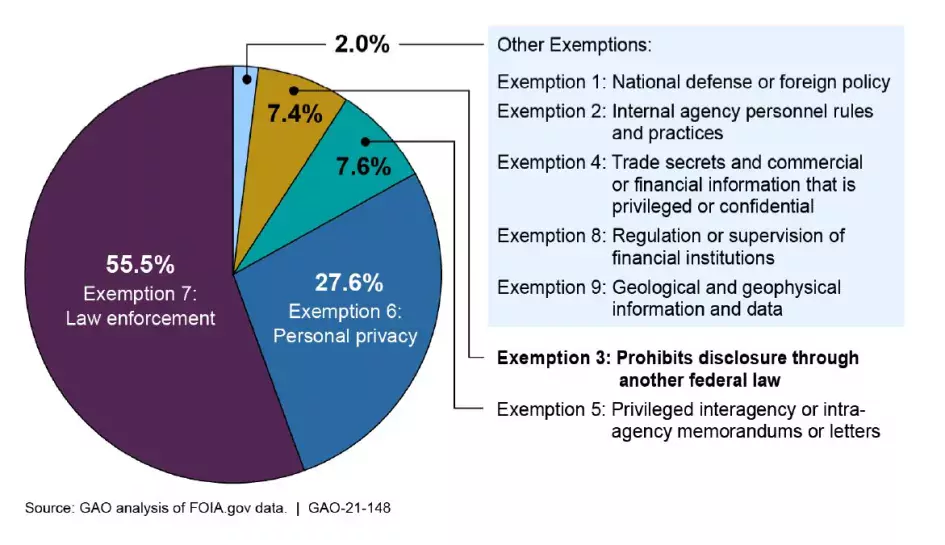Freedom of Information Act—How Open is Public Access to Government Data?
The Freedom of Information Act (FOIA) establishes a legal right for individuals and organizations to request access to government information. In FY 2019, federal agencies reported that they processed nearly 878,000 FOIA requests for government information, an increase of 32% since FY 2012.
In honor of Sunshine Week—an annual observation that promotes open government—today’s WatchBlog post looks at our recent reports on agencies’ implementation of laws that seek to improve the public’s access to government information.
What does the government disclose as part of open government laws?
FOIA requires agencies to publicly post certain information without waiting for specific requests and report on these disclosures annually. These proactive disclosures include final opinions, administrative staff manuals, and records that have been requested 3 or more times.
In our March report, we assessed agency policies related to these disclosures. Among other things, we found that the Department of Housing and Urban Development did not report proactively disclosing any records from FY 2017 through 2019. Similarly, we found that the Veterans Health Administration and the Federal Aviation Administration did not report the number of records disclosed for all required categories in FY 2019.
We made 8 recommendations to help improve compliance with these requirements.
What might the government not disclose under FOIA?
FOIA requires agencies to provide the relevant records in response to a request unless an exemption applies to limit the disclosure of that information, such as withholding classified national defense or foreign policy information. The graphic below provides more detail on FOIA’s 9 exemptions.
Image

In FY 2019, agencies denied approximately 34,000 requests based on exemptions. More than half of these requests were related to law enforcement and investigations.
The exemption, which authorizes agencies to withhold information on the basis of a federal law not otherwise covered in other exemptions, accounts for 7.4% of FOIA exemptions government-wide. In our January report, we reviewed agencies’ use of 256 federal laws citing this exemption in FY 2010 through 2019. We found that agencies’ use of this exemption more than doubled since FY 2012.
Data Transparency and Quality
In our work we have also recommended openness and accountability to comply with other laws:
- The OPEN Government Data Act requires federal agencies to make their data available in a format that can be automatically read and processed by a computer and to publish their data on the agency’s website and on Data.gov. In October, we reported on the federal government’s progress toward implementing the OPEN Government Data Act, and made 3 recommendations to help improve further implementation.
- The Digital Accountability and Transparency Act of 2014 (DATA Act) calls for improving the transparency and quality of federal spending data. A key component of data quality is effective data governance, which means having a framework for ensuring that an agency’s data are transparent, accessible, and of sufficient quality for policymaking and informing the public. In our December report, we found that the 4 agencies we selected had made substantial progress in establishing specific aspects of a data governance framework, and made 9 recommendations to address other key milestones.
- Comments on GAO’s WatchBlog? Contact blog@gao.gov.





